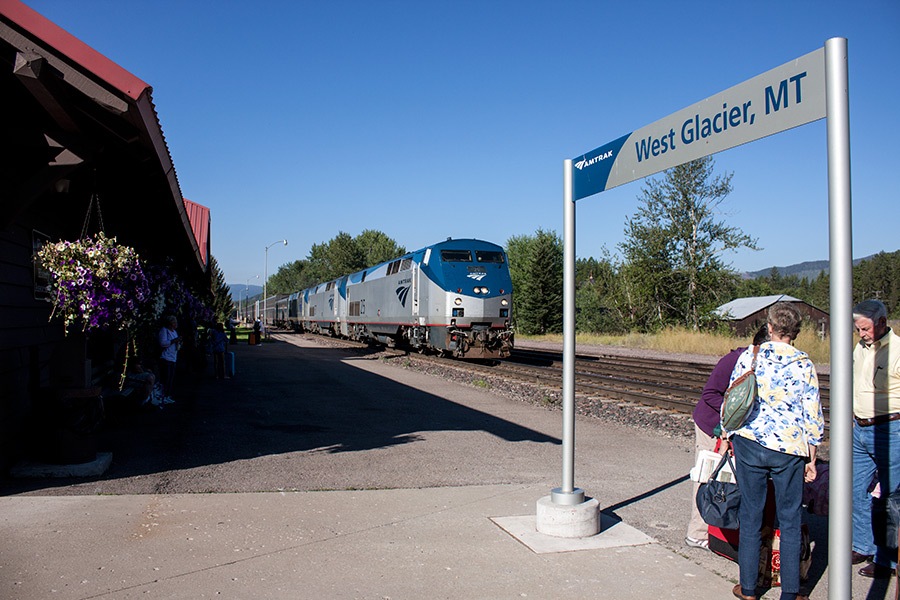One-thousand, seven-hundred miles separates Washington D.C. from the Montana border, but decisions made in the nation’s capitol can have a profound impact on the Treasure State, especially when it involves transportation.
Much of Montana’s transportation system — roads, airports and its only passenger train — all rely heavily on federal dollars. How those funds are distributed will now be decided by the Republican-controlled Congress and White House, as well as the newly named Secretary of Transportation, Elaine Chao.
Chao previously served as Secretary of Labor under George W. Bush and prior to that was Deputy Secretary of Transportation under George H. W. Bush. She is also married to Senate Majority Leader Mitch McConnell. It has been suggested that the new Transportation Secretary’s close ties to the Senate mean President-elect Donald Trump is serious about pushing one of his cornerstone promises of the campaign: infrastructure investment.
“We are going to fix our inner cities and rebuild our highways, bridges, tunnels, airports, schools, hospitals. We’re going to rebuild our infrastructure, which will become, by the way, second to none,” Trump said during his victory speech on election night.
Trump has vowed to push a $1 trillion infrastructure plan backed by billions of dollars worth of tax credits to spur private investment. If that plan pans out, it would be welcome news to infrastructure and transportation advocates, said Darryl James, executive director of the Montana Infrastructure Coalition. The coalition was established in early 2016 and has more than 80 members, including architects, engineers and community officials.
“The rhetoric has been that we’re going to spend a lot more on infrastructure and that’s long overdue,” James said.
If Trump stays true to his promise, it could have a positive impact on Montana, James said. It would not, however, resolve all of the state’s transportation challenges. Although most road projects in Montana are fueled with federal dollars, it’s been years since the state raised its gas tax. Because of that, the state frequently has a hard time raising the necessary funds to match federal grants, which is usually a requirement for receiving those funds.
“We are heavily reliant on federal funding to maintain our highways,” he said. “But we need to do something at the state level to make sure we can match what the feds are trying to give us.”
James said his group would push the state Legislature to consider increasing the state’s fuel tax to ensure Montana can continue to receive federal funds in the future.
Trump’s promise to offer tax credits that encourage private investment could lead to infrastructure projects that can generate income, like toll roads and airports. But it’s murkier for public transit and passenger trains, said Barry Green, Montana representative for the National Association of Railroad Passengers.
“It’s hard to say what’s going to happen,” Green said. “The president-elect has pushed for an infrastructure bill, but none of us know what that means for rail and transit.”
Green said Congress could make it tough to find additional funding for Amtrak, which desperately needs new passenger cars for its long-distance trains like the Empire Builder. Green said most of the passenger cars that roll through Whitefish on the Empire Builder were built more than 40 years ago.
The NARP members Green talked to were surprised that Trump picked Chao and noted that there is little in her past to determine how she will deal with Amtrak. However, he and other members were pleased that Florida Congressman John Mica – former chairman of the Committee on Transportation and Infrastructure and a regular critic of Amtrak – did not get the top DOT spot. Prior to the announcement that Choa had gotten the job, Mica was a frequently mentioned as a candidate.
“He’s not a big fan of Amtrak,” Green said of Mica.
Green said he hopes the new Congress considers investing more in Amtrak so that it can expand service, not just in populated areas, but in rural areas, too.
“People want choices,” he said. “And rural areas need good transportation, too.”
